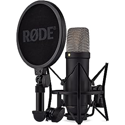Radio Was Not Killed by MTV and iPod, Now It’s Dejavu with Spotify
Music listening nowadays appears to be unique. Individuals needn’t bother with a DJ turning them new tracks that they’ll take them to purchase at a record shop; they pick their own particular tunes on Spotify. As per everybody from Jay-Z to Katy Perry, the rule of radio is no more.
However why the anguish? Radio is in reality more alive than any time in recent memory.
Nielsen, uncovers in its Music 360 report that radio is as yet the main way individuals are finding new music.

Traditional radio isn’t cool any longer—that much is sure. Also, less individuals buy automobile. Radio, as an approach to tune in to music, is the inverse of dead. In fact, it is the future.
The problem with streaming apps like Spotify is that there is just too much choice, too many songs available in their hands, people just want to passively interact with music.
Lately however, there has been a shift, streaming has become more of a traditional radio.
Spotify made waves when it dropped Discover Weekly, an algorithmic coded playlist that is consistently revived with suggestions for the audience.
Since Discover Weekly, there’s been Release Radar, Fresh Finds, My Time Capsule.
Spotify’s RapCaviar playlist this mid year turned into an industry-toppling upheaval, propelling the careers of numerous artists, for example, Cardi B, whose track “Bodak Yellow” left a mark on the world a month ago and even figured out how to topple the rule of Taylor Swift.
At the end of the day, streaming playlists are another type of radio. “Bodak Yellow” was passed by on most AM/FM stations; it owes the greater part of its success to RapCaviar, which has around 7.6 million supporters. “Rockstar,” a track from rapper Post Malone, as of late came to #2 in the US.
Curation, personalization, this is what radio is all about, and app developers have realized giving people more songs to listen to is not what it is all about. Despite playlists becoming like radio though, streaming apps will never replace the human touch of real radio.









